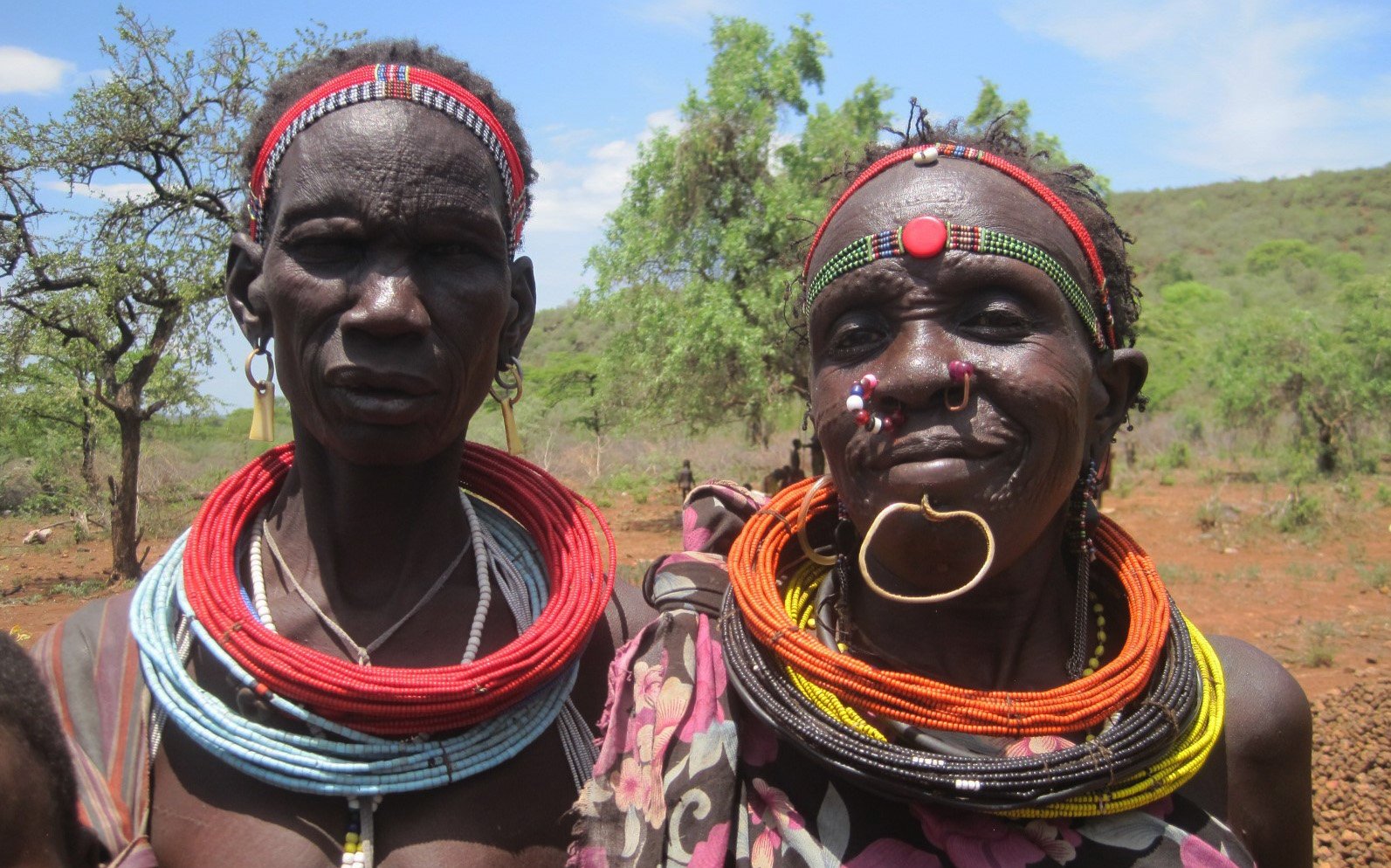
Toposa women
In early April, I was blessed to visit a rather well-known Catholic bishop in South Sudan, Bishop Emeritus Paride Taban. He had invited me to come to Kuron in the southeastern corner of South Sudan, where he lives. Since his retirement, 84-year old Bishop Paride has continued, with his forever-young energy, to build up Kuron Peace Village in this remote and forgotten area. I wanted to spend Holy Week in quiet retreat, and this seemed like a perfect opportunity.
I planned to stay in Kuron only 10 days, but shortly after arriving, the government shut down all air and land transport to prevent the spread of COVID-19. So I am effectively stranded here and … loving it! I couldn’t have chosen a more gentle and agreeable place to serve out my isolation during the coronavirus pandemic. In fact, it may be the very isolation of this place that will safeguard, to a certain degree, these people. Hardly anyone travels to this desolate region.
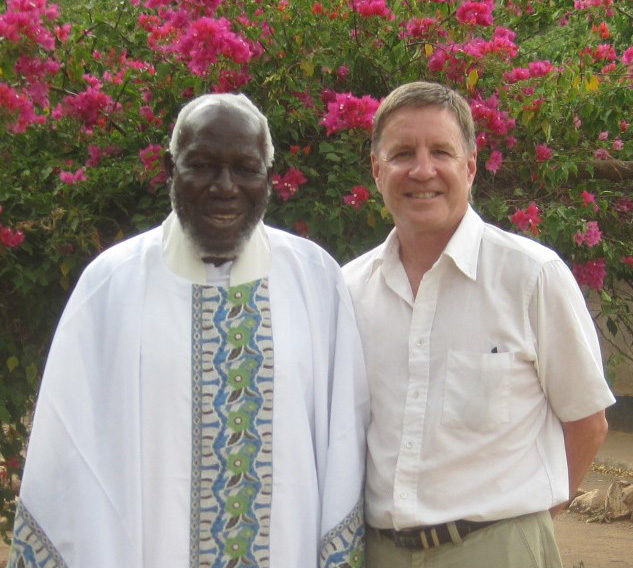
Gabe with Bishop Paride Taban
Bishop Paride is like no other bishop I have met. Although this man has dined with popes, presidents and dignitaries, he has maintained a down-to-earth personality. He has been under fire during the civil wars, threatened, imprisoned, harassed and even had to run for his life many times throughout the recent violent history of South Sudan. But he has continued his positive efforts toward peace and reconciliation in spite of the great odds against him.
On a recent, sweltering 107-degree day, Bishop Paride invited me to his small two-room hut and shared a bowl of cold papaya fruit. After 10 days of nothing but beans and rice for breakfast, lunch and dinner, this fruit tasted like a five-star hotel special of the day. Bishop Paride told me stories of his childhood, while I savored this special treat. I liked the man from the get-go. We often spend hours at night gazing at stars and sharing stories.
The Peace Village is Bishop Paride’s vision for the future of South Sudan. He deliberately chose this remote site as it is a meeting place of several ethnic groups living in this region. He wanted to show the local people how to live in peace and harmony even as their cultures and traditions are different. This man of 84 years has visions and dreams which will carry far into the future after he is gone.
Bishop Paride has built a nursery school, a primary boarding school, and is now in the process of building a secondary school. He also has a health center (which doubles as a veterinary clinic), peace-building center, agriculture-training program, and economic and social livelihoods, a technical training school, and road building program. Toposa women have even constructed a hand-made gravel runway for small planes as a food-for-work project. It is one of the best runways I have seen.
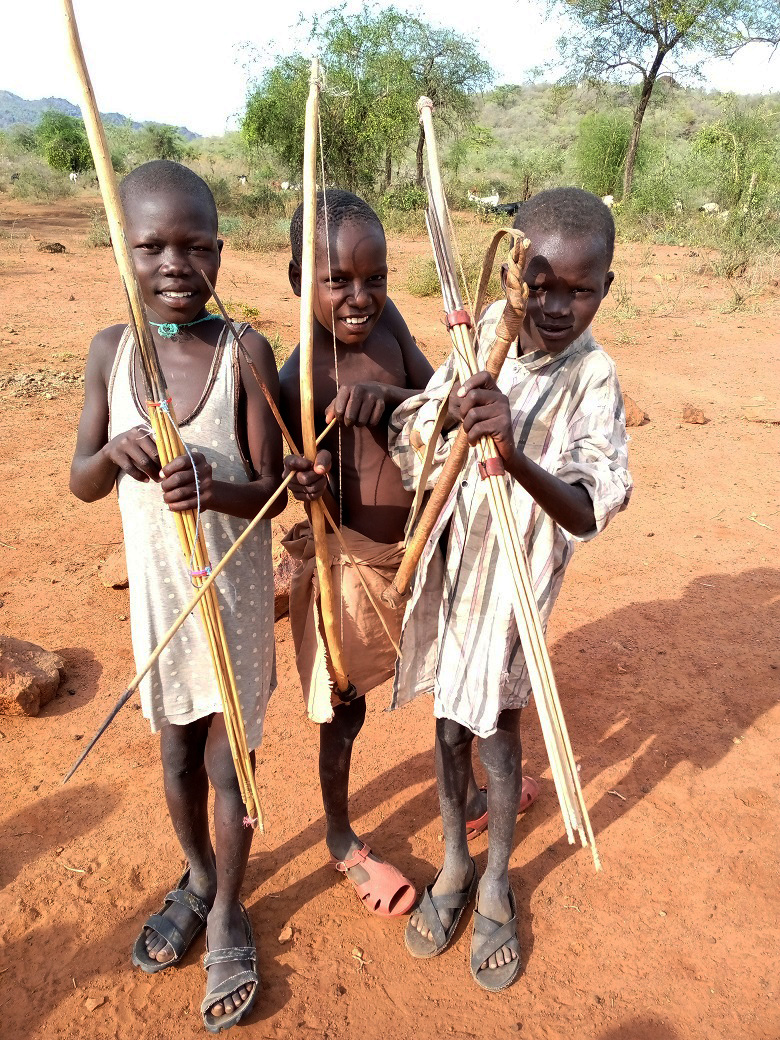
Toposa children showing off their bows and arrows (Photo by Daniel Odida)
The Toposa people are so pleasant to be around. They sit quietly or stand off to the side and simply look me over. What they are thinking I have no idea, but there is little in the way of expression—until I smile, and then they smile. The Toposa are traditionally cattle keepers and often have conflicts with neighboring ethnic groups over who owns what cows or goats. Every tree, shrub or bush in this semi-arid region has thorns on it, which shows how tough life is here. How people who live on curdled milk, sorghum and occasional meat can live such a robust lifestyle is quite something. One man gave me a small stick, which they use for a toothbrush and I have been diligently using it since. Takes a bit of getting used to, but maybe my teeth will be the better for it? Toposa have the whitest teeth I have seen anywhere and never use tooth paste or brush.
So one day I was standing by the muddy banks of the river Kuron, enjoying the quiet of this natural beauty. An elderly Toposa man comes down the embankment and after exchanging the usual local greetings, he calmly strips down to his birthday suit. Well, how do you do!? There he stood in total innocence. A ring in his lip was all he was left wearing. This ancient ancestor gave me an incredibly white smile and then calmly moved into the river and began to bathe in the chocolate brown waters. He beckoned me to join him, No thanks, dear uncle, I’m not used to bathing in coffee.
As I turned to climb the steep bank, I was confronted by three dozen heads of cattle slipping and sliding down the bank. Gosh, I thought I was going to join the old man in this avalanche of bovines or be gored to death then and there. Thank God, neither occurred. I stood stock still waiting for the inevitable collisions, but by some miracle not one cow touched me but certainly splashed me as they almost catapulted into the river. The bathing man hardly noticed them as they surrounded him, and he continued as serenely as before.
I turned again to see the cattle herder who was skidding down the steep bank, brandishing his AK-47 (which is standard equipment for herders in this region). More local greetings, and he too stripped to the skinny. I wasn’t quite so surprised this time. He then headed into the muddy waters among his cattle, stroking, bathing, and talking to them.
I had no intention of staying in this remote area for so long, but the Holy Spirit has brought me here for a reason. I spend my days working with the staff on various administrative things and helping them develop some documents and plans. I also assist with English editing of communications and documents. I walk the four miles to the health clinic and chat with the staff there. It is a gentle, African pace, and I am happy to do what I can to help out.
As of May 5, South Sudan only had 52 official confirmed cases COVID-19, but we are aware that people are crossing the borders from neighboring countries. The risk in South Sudan is considered high, due to the lack of healthcare systems, monitoring and compliance with international policies to control the spread of the virus.
Although we seem to be far removed from the world at large, the Toposa people here have been thoroughly educated about COVID-19 issues. Even the children know not to shake hands and instead come at you with bent elbow. Bring out the sanitizer, and all the people put out their hands and know exactly what to do. I am impressed that the Kuron Peace Village staff, World Food Program, Government Ministries and NGOs in this area have been so effective.
I wait for the lifting of restrictions with patience and contentment in this idyllic site. Look up Kuron Peace Village on Google Earth, and you will see where I am riding out the pandemic.
May God bless and protect all of you from this dreadful disease.

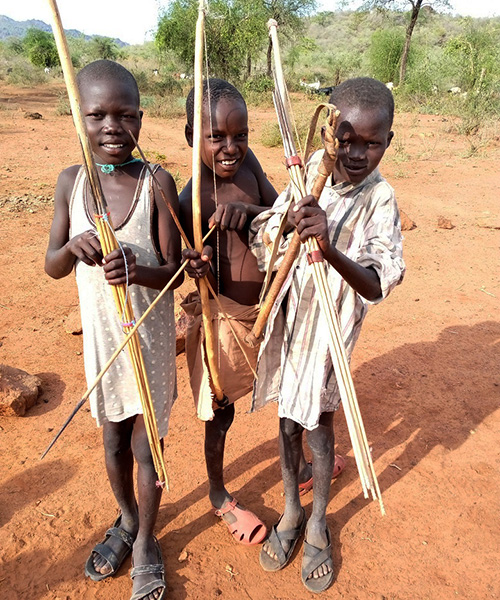

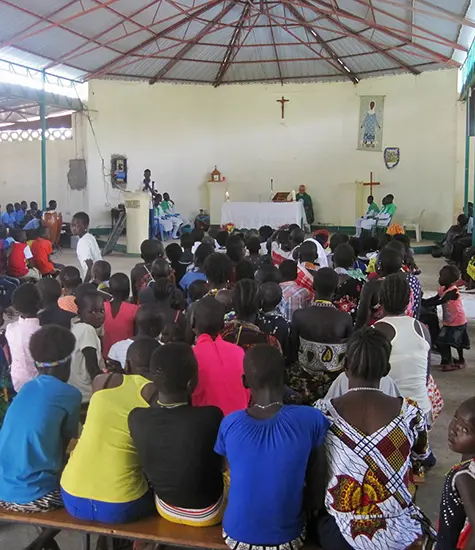
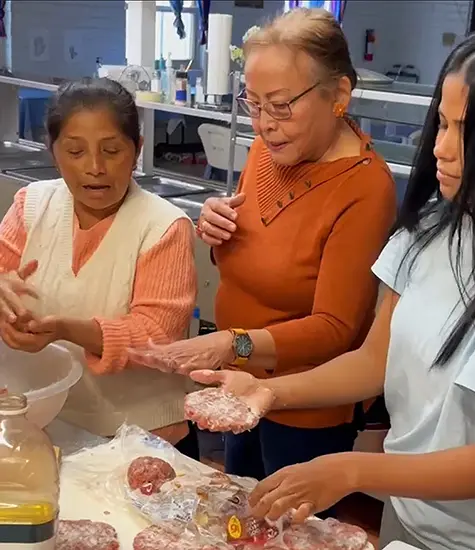
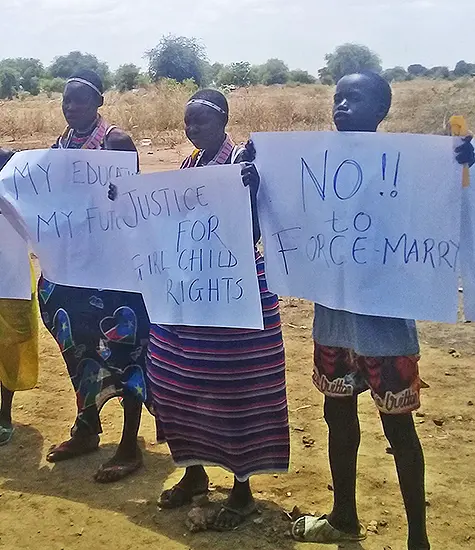




Gabe, I am praying for you and the people you are there supporting. We obviously need to check-in with each other more often.